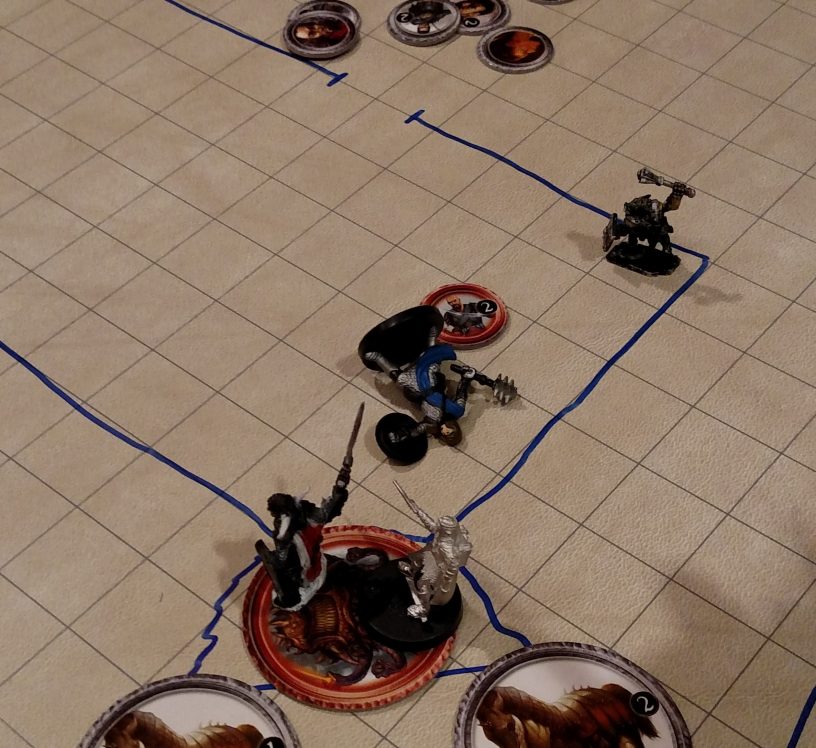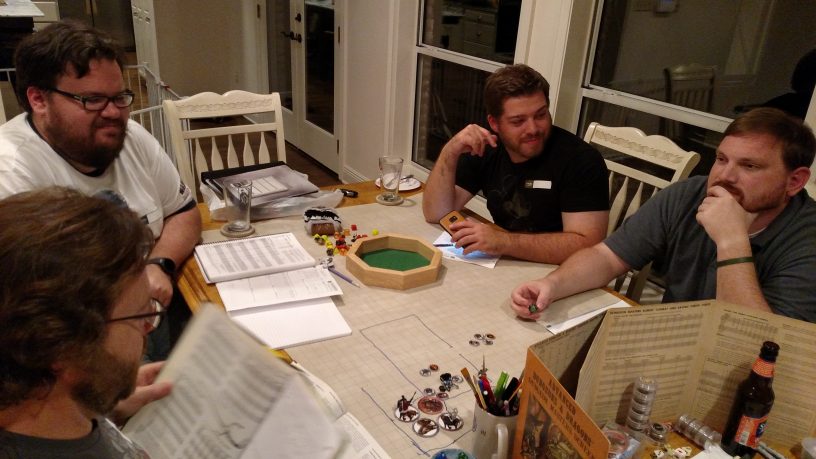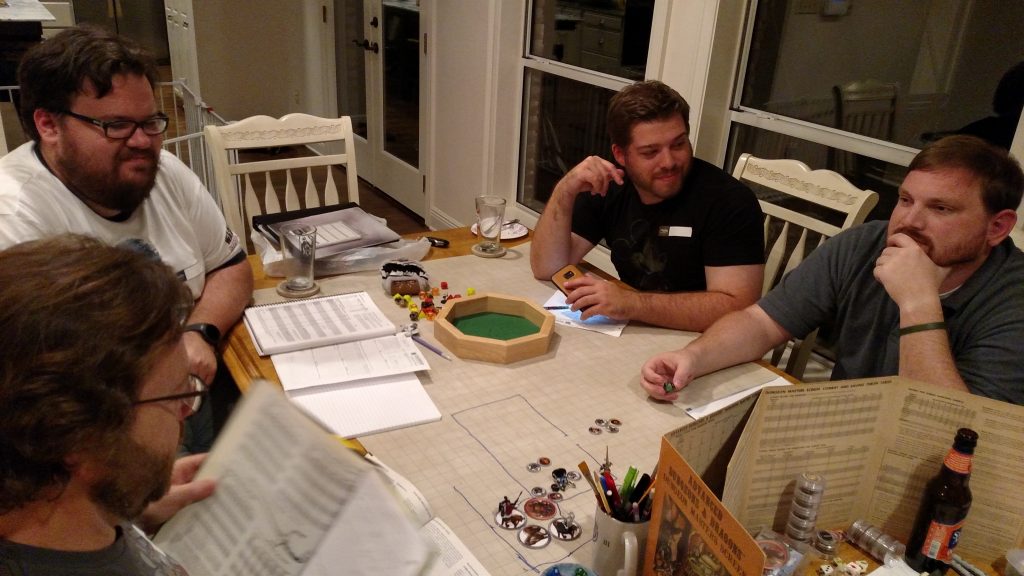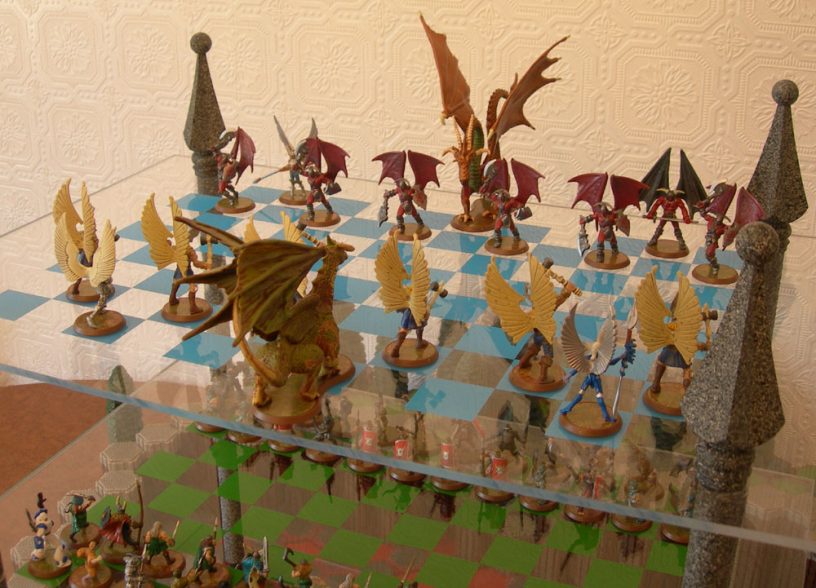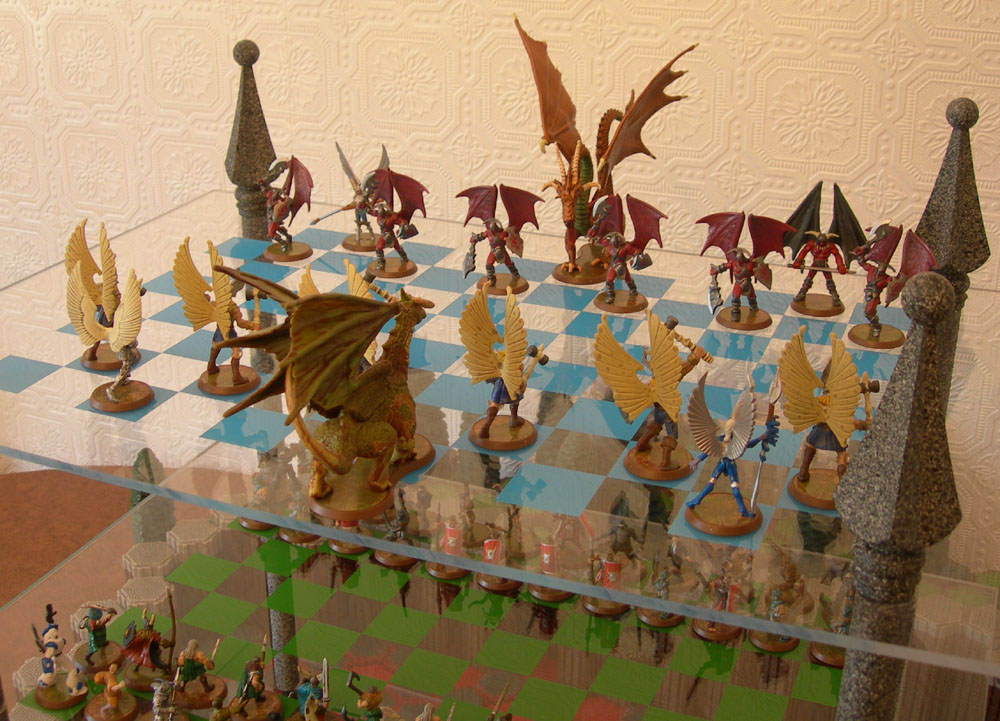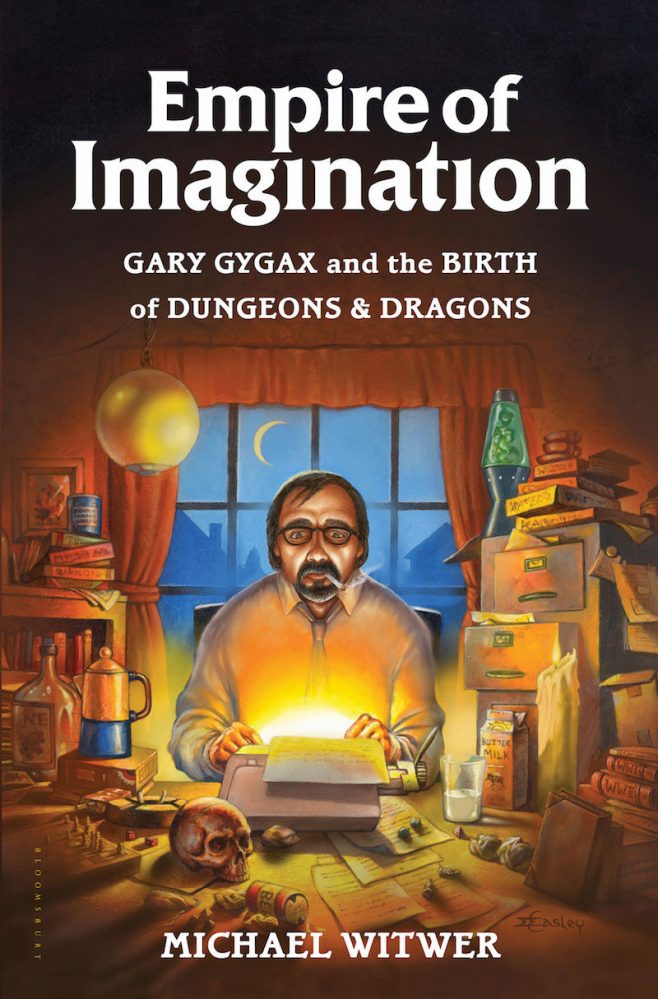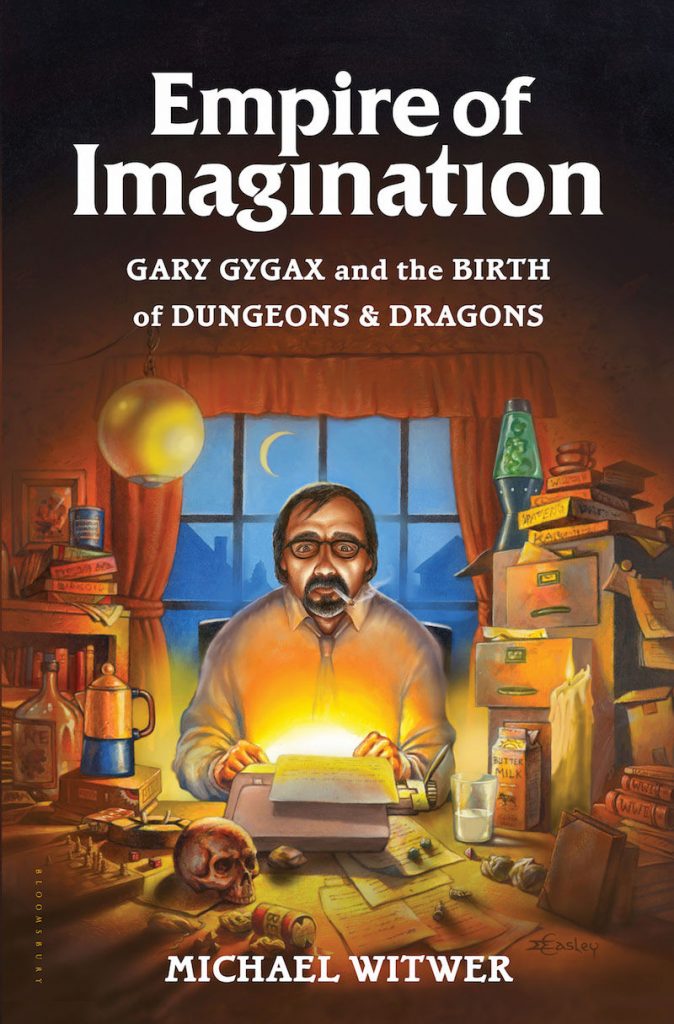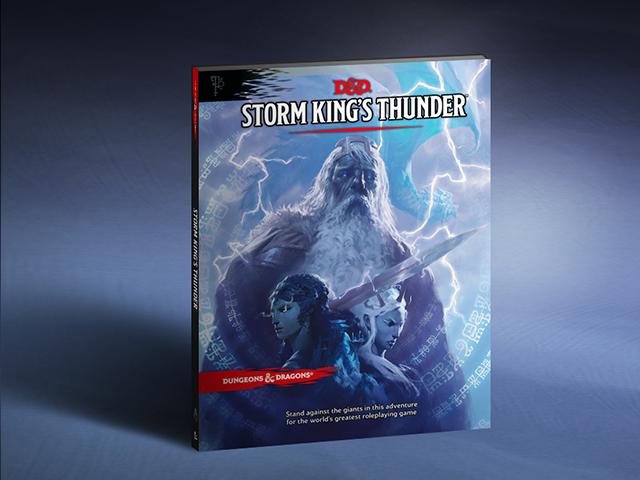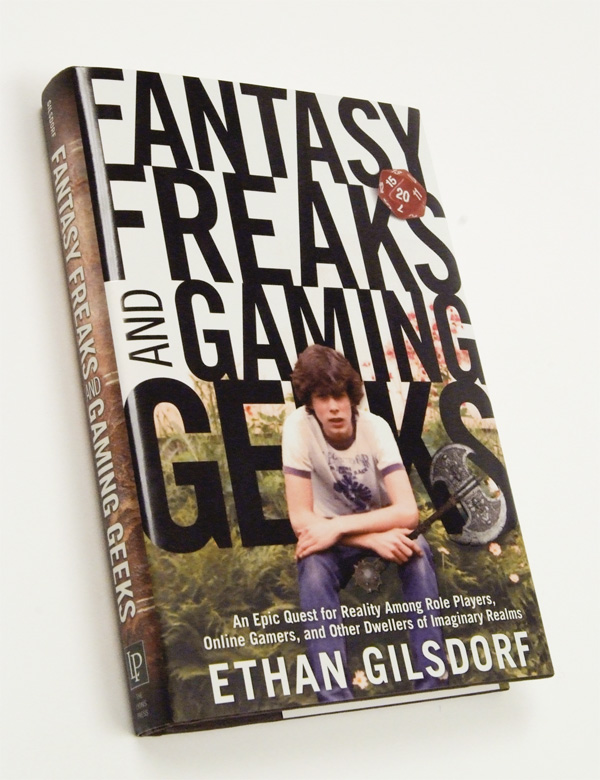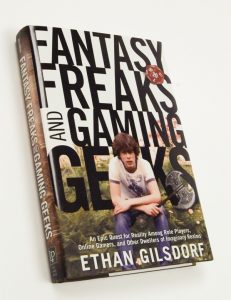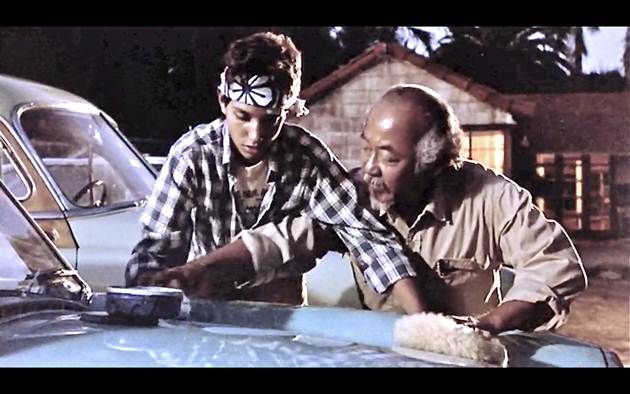It appears that I struck a real chord with Tuesday’s article on player character death. Why did so many GMs and players respond so passionately to my post? Because players sometimes get mad at GMs when their characters die.
Not all players and not always. But it does happen and it creates tension at the tabletop, when players are angry over their characters’ deaths.
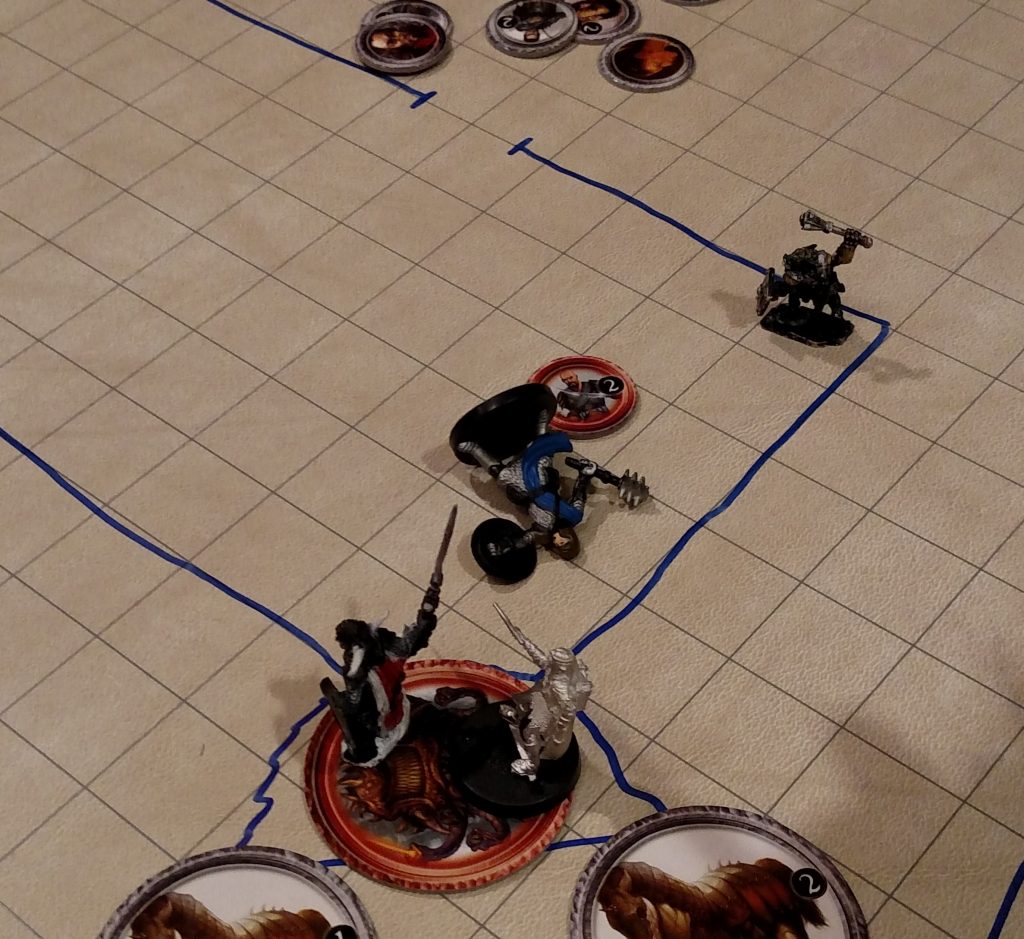
Another final shot of our fallen comrade. RIP Elder Cunningham. FWIW, the beholder there is actually a giant snake. I wouldn’t do that to Level 2 adventurers!
One particular response (from @theTinyGM on Twitter) took exception to my use of the word “threat” in relation to PC death. Her concern was that the language of a threat might set up a confrontational relationship between GM and player. Of course, nothing could be further from my intention.
But it raises the question: can GMs create conflict and challenges for PCs–can they “threaten” the livelihood of adventurers–without creating a confrontational atmosphere? I’m convinced you can! If I can pull it off, you can too!
Here are the three steps you can take to create a challenging situation that will end in nothing but fun and mutual respect at your gaming table:

